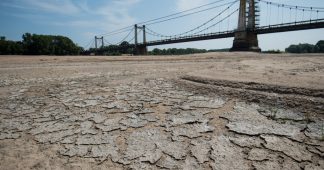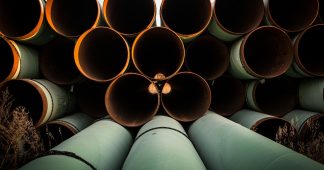Humans have caused major climate changes to happen already, and we have set in motion more changes still. Even if we stopped emitting greenhouse gases today, global warming would continue to happen for at least several more decades, if not centuries. That’s because it takes a while for the planet (for example, the oceans) to respond, and because carbon dioxide – the predominant heat-trapping gas – lingers in the atmosphere for hundreds of years. There is a time lag between what we do and when we feel it.
In the absence of major action to reduce emissions, global temperature is on track to rise by an average of 6 °C (10.8 °F), according to the latest estimates. Some scientists argue a “global disaster” is already unfolding at the poles of the planet; the Arctic, for example, may be ice-free at the end of the summer melt season within just a few years. Yet other experts are concerned about Earth passing one or more “tipping points” – abrupt, perhaps irreversible changes that tip our climate into a new state.
But it may not be too late to avoid or limit some of the worst effects of climate change. Responding to climate change will involve a two-tier approach: 1) “mitigation” – reducing the flow of greenhouse gases into the atmosphere; and 2) “adaptation” – learning to live with, and adapt to, the climate change that has already been set in motion. The key question is: what will our emissions of carbon dioxide and other pollutants be in the years to come? Recycling and driving more fuel-efficient cars are examples of important behavioral change that will help, but they will not be enough. Because climate change is a truly global, complex problem with economic, social, political and moral ramifications, the solution will require both a globally-coordinated response (such as international policies and agreements between countries, a push to cleaner forms of energy) and local efforts on the city- and regional-level (for example, public transport upgrades, energy efficiency improvements, sustainable city planning, etc.). It’s up to us what happens next.
Published at https://climate.nasa.gov/faq/16/is-it-too-late-to-prevent-climate-change/











